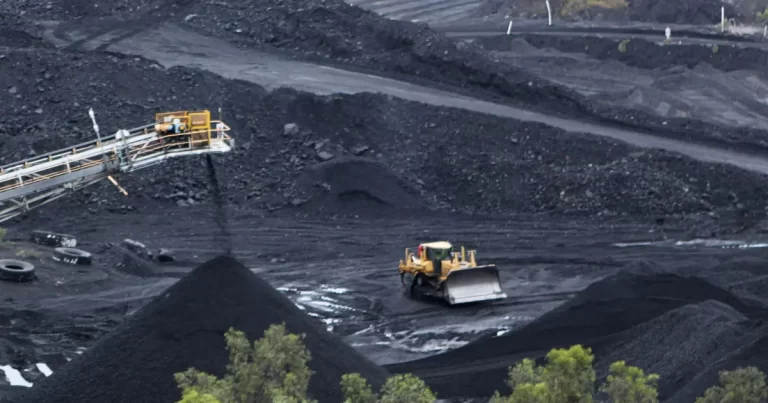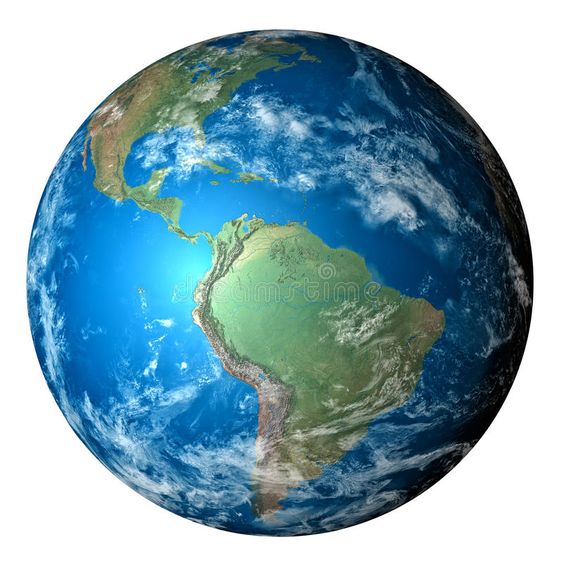
The importance of coal in the Australian economy is increasing because of the Ukraine war. Most of the industrialized world (except China) is now boycotting coal from Russia which produces 423 million tons a year.
By Tom Arms
Australians are one of the worst-hit victims of climate change, and their government’s policies are having a detrimental impact on them and rest of the world.
Federal elections scheduled for next weekend will do little to save the situation. The two major parties appear united in putting financial gain before survival.
Climatologists predict that temperatures Down Under are set to rise by nearly 10 degrees Fahrenheit by the end of this century. The bushfire season is already nine months long and the flames have so far destroyed 14.6 million acres—territory roughly equal to twice the size of Pennsylvania.
One in six of the country’s wildlife face extinction in the next few years, according to the WWF and the vital coral banks of the Great Barrier Reef are being bleached white by rising sea temperatures.
But despite these apocalyptic facts and figures both the Australian Labor Party and the ruling coalition of the Liberal and National Party remain committed to protecting the dirtiest, most polluting, fossil fuel of them all—coal.
Australia is the world’s largest exporter of coal—427 million tons. The fossil fuel is also Australia’s biggest export and 50,000 jobs rely on it.
The importance of coal in the Australian economy is increasing because of the Ukraine war. Most of the industrialized world (except China) is now boycotting coal from Russia which produces 423 million tons a year. This means that the price of coal increased 400 percent to $170 per metric ton between September 2021 and May 2022.
The Labor Party of Anthony Albanese—which is currently predicted to win the election—does play lip service to the problem of climate change. Its manifesto talks about more electric cars, solar panels and other renewable energy sources.
But its policy towards coal is dictated by a pro-coal internal party faction known as the Otis Group which is dominated by the coal trade union (the Mining and Energy Division of The Construction, Forestry, Maritime, Mining and Energy Union). The mining union is especially powerful in key parliamentary seats in Queensland and New South Wales.
The Liberal/National coalition is led by one of the world’s most outspoken climate change deniers—incumbent PM Scott Morrison. He nearly boycotted the COP26 climate change conference in Glasgow last November and helped to undermine the final communique. One of the conference’s objectives was to “consign coal to history.” But thanks in part to Morrison’s lobbying COP26 fell way short of that goal.
Keith Pitt, the coalition government’s Minister for Resources and Water, has gone on record to say that Australia will be “producing and exporting coal well beyond 2030.”
In the meantime the sea levels and temperatures will continue to rise. The Great Barrier Reef, the spawning ground for most of the fish of the Pacific Ocean, will shrink. Bushfires will spread. Wildlife will become extinct and Australia will remain the chief exporter of the fossil fuel that produces 40 percent of the world’s pollution.
 World Review
World Review
- The Irish question has bedevilled British, European and American politics since… well, forever. It played a role in the Council of Whitby in 664. In 1169 England’s Norman rulers invaded and started centuries of direct conflict. All this was supposed to end with the 1998 Good Friday Agreement. Well two events this week have brought it back from a shallow grave: The emergence of Sinn Fein as the largest party on both sides of the border and British refusal to accept the Northern Ireland protocol. The two political incidents have also brought the possibility of a united Ireland a giant step closer. Sinn Fein is totally committed to a referendum in the north on a united Ireland. The long-term stranglehold of the Protestants on the on the politics of the six northern counties has been a major stumbling block. That has ended. The Northern Ireland Protocol is also pushing the two halves together. It has tied Northern Ireland economically to the EU and the southern part of the island and weakened trading ties with Britain. The Protestants are, of course, opposed to the protocol. The conservative Boris Johnson government is trying to reverse it because of their traditional links to Protestant parties and commitment to a divided island. But the Protestant establishment—in the form of the Democratic Unionist Party—is no longer in the majority. And the majority of Northern Irish voters see their future in Europe and that means linked with the Republic of Ireland. But they still have to contend with die-hard Protestants, who, if they cannot win at the ballot box, could easily turn to the terrorist tactics of their IRA counterparts.
- Britain was the driving force behind the creation of the North Atlantic Treaty Organization (NATO) in 1949. It pushed for the alliance to quickly admit former Warsaw Pact members in the 1990s and has taken the lead in arming Ukraine. This week British PM Boris Johnson was in Sweden and Finland to sign “mutual assistance” treaties with Sweden and Finland. The three countries are now pledged to come to each other’s aid in the event of a crisis. The treaties are a symbolic first step towards full-fledged Swedish and Finnish membership of NATO which is expected to be finalized at next month’s heads of government summit. Vladimir Putin is furious and has promised retaliation. NATO expansion, Putin has repeatedly asserted, is one of the main reasons for his invasion of Ukraine. But for Sweden and Finland, the Russian invasion of Ukraine is THE reason for their decision to end 200 years of neutrality for the Swedes and 67 years for the Finns.
- Ukraine’s Volodomyr Zelensky reckons his country has paid in blood for EU membership. It is fighting European democracy’s war against autocracy. The least that Western Europe can do is recognize Ukrainian sacrifices and fast track their membership application. Think again, says France’s Emmanuel Macron, the new self-appointed leader of Europe. It takes years for countries to jump through all the membership hoops related to corruption, economic and political stability, a free press, human rights and an independent judiciary. Shortcuts mean that you end up with thorns in the side such as Hungary, Poland, Slovakia and the Czech Republic. Other countries such as Turkey and the Balkan states have been awaiting admission for years. Macron’s response to the impatience of Zelensky and others is to suggest a halfway membership category which journalists have dubbed EU-lite. This completely new organization proposed by Macron in a speech before the European Parliament, will coordinate European cooperation in sectors such as energy, transport and security. It will also allow existing members of the EU to get on with the stickier problems of political and economic integration. Members who have left the European club—i.e. Britain—would be allowed to join this new second tier. This is not the first time a French leader has proposed a two-speed Europe. Francois Mitterrand suggested a similar arrangement in 1989 after the fall of the Berlin Wall. It was rejected then and both Ukraine and Britain have thrown cold water on Macron’s proposal this time around.
- Once a year the Queen sits on her throne in the British House of Lords and outlines the government’s proposed legislation. Not this year. Queen Elizabeth II was for the first time since 1959 conspicuous by her absence. Her role was taken by the heir to the throne Prince Charles. The fact is that at 96, the Queen is old and proud. She did not want to be seen being pushed into parliament in a wheelchair. In the opinion of many Elizabeth II is a vestigial anachronism of feudal Britain. To others she is the epitome of service and duty and the near-perfect physical embodiment of the British constitution, history and traditions. She certainly has more political influence than many realize. Her experience and knowledge is immense. She is the head of the Commonwealth of 56 nations and the direct head of state of 16 others, including two G7 countries and three G20 countries. The British monarch can no longer issue decrees or make laws. But she has the right to be advised and to offer advice. She has weekly confidential meetings with the British Prime Minister and ad hoc meetings with other cabinet ministers. She is also in regular contact with political leaders in each of the countries with which she is head of state and communicates with hundreds of other major world figures. One does not turn down a telephone call with the Queen. With 70 years’ experience at this confidential pinnacle of world affairs her opinion is sought after. Queen Elizabeth II has carved out a new and important niche for the British monarch. Whether her successors can fill it remains to be seen.
_________________
 Tom Arms is foreign editor of Liberal Democratic Voice and the author of the recently published book “America Made in Britain.”
Tom Arms is foreign editor of Liberal Democratic Voice and the author of the recently published book “America Made in Britain.”